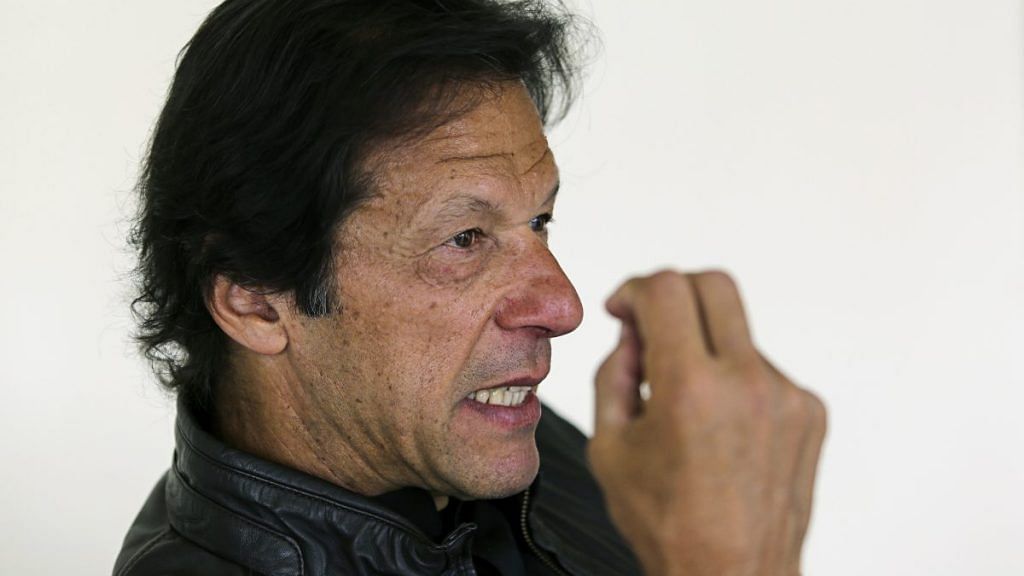New Delhi: India believes Pakistan will once again wriggle out of being ‘blacklisted’ by terror financing watchdog Financial Action Task Force (FATF) despite global pressure on Islamabad, sources told ThePrint.
New Delhi’s chances of getting Pakistan moved from ‘grey list’ to ‘blacklist’ will be “difficult”, said the sources.
The factors behind the “bailout” will be similar to the ones in October 2019, when Islamabad managed to avoid the harshest sanctions. This time too, Pakistan will be supported by China, Turkey and Malaysia, said the sources.
“Pakistan will not be able to adhere to all the rules and regulations of FATF. It only has a month to go and they have not done much. But they will not be blacklisted because they will be able to manage the votes,” a top official involved in the talks told ThePrint.
In October, Paris-based FATF had issued a stern warning to Pakistan to meet all parameters by the next plenary — the watchdog’s highest decision-making body — in February.
Also read: China opposes blacklisting Pakistan, says FATF aim shouldn’t be to punish any country
What FATF wants Pakistan to do
According to FATF norms, Islamabad has to completely overhaul its financial network systems to strengthen its anti-money laundering/countering the financing of terrorism regime, or AML/CFT, regime. In other words, it has to crack down on terror outfits like Jamaat-ud-Dawah and Lashkar-e-Taiba.
The FATF plenary will meet in Paris next month to evaluate the steps taken by Islamabad so far on account of the AML/CFT commitment. This process has been going on since June 2018.
However, the FATF will hold a review meeting in Beijing this month to prepare a preliminary analysis, sources said.
Currently, Pakistan is seeking to reply to a questionnaire, comprising 150 queries sent by the intergovernmental body, by 8 January. The queries mainly pertain to actions the Imran Khan government has taken against the madrassas that are affiliated to the terrorist outfits.
The Hafiz Saeed-led JuD network includes 300 seminaries and schools. In March 2019, Pakistan’s Punjab police had said it seized control of 160 madrassas, 32 schools, two colleges, four hospitals, 178 ambulances and 153 dispensaries linked to the JuD and its charity wing Falah-i-Insaniat Foundation (FIF). At least 56 madrassas and facilities being run by JuD and FIF in southern Sindh province were also taken over by authorities in the same month.
‘Impossible to blacklist’
Speaking to ThePrint, veteran diplomat and former foreign secretary Kanwal Sibal said, “It will be impossible to blacklist Pakistan at this point by the FATF. No doubt they are under pressure and that is why they will do some changes but they cannot do much as not much time is left.
“And cracking down on the financing networks of the terror outfits will further de-stabilise the situation in Pakistan.”
Sibal also said China, Malaysia and Turkey will again stand beside Pakistan and save it from being blacklisted. The FATF presidency with a Chinese will also work in its favour, he added.
Xiangmin Liu, director-general of the legal department at Beijing’s central bank, is the current FATF president.
However, T.C.A. Raghavan, Director General, Indian Council of World Affairs, and former Indian high commissioner to Pakistan, said, “Pakistan’s internal situation with their judiciary now will not let them focus on reforming their financing regulatory frameworks.”
The Pakistani judiciary has been involved in a standoff with the Army in the past few months.
If FATF blacklists Pakistan, then global financial institutions will not be able to lend money to Islamabad. In a December 2019 report, the IMF said such a move will have implications for capital inflows to Pakistan. Last year, the IMF had approved a $6-billion bailout to Pakistan on tough conditions.
Also read: Terrorists shouldn’t get funds & arms, politicisation of fight against terror must end: Modi
